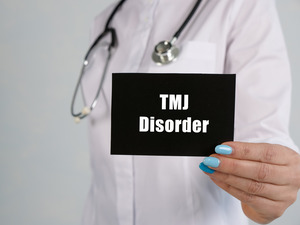December 23, 2022
The Truth Behind 5 TMJ Disorder Myths

Millions of Americans suffer from TMJ disorder in one form or another. Despite this, there are still many misconceptions about the condition floating around. It’s important to have all the facts so that you can get the effective TMJ treatment you need as soon as possible. Below are 5 common TMJ myths and the truth behind each one of them.
1. You Can Only Get a TMJ Disorder from Injuries
While it’s true that TMJ disorder is often caused by a direct blow to the jaw or whiplash experienced in a car accident, this condition isn’t always the result of an injury. Sometimes the problem lies in a misaligned jaw that puts an excessive amount of pressure on the TMJ. Another common risk factor is bruxism, which is when you grind your teeth at night; this exposes your TMJ and the tissues around it to a lot of stress.
2. TMJ Disorder is Rare
TMJ disorder is a more widespread problem than you might think. It’s estimated that as many as 1 in 10 people around the world are suffering from this condition. And while certain groups – such as women and adults between the ages of 20 and 40 – tend to have a higher risk, virtually anyone can develop TMJ problems.
3. If the Clicking in Your Jaw Stops, Your TMJ Disorder is Gone
In many cases, TMJ disorder is accompanied by a clicking sound whenever you move your jaw. However, even if this sound seems to stop after a while, that doesn’t necessarily mean that the condition is gone. Furthermore, a clicking sound is far from the only symptom of TMJ disorder; there are other warning signs to watch out for such as chronic jaw pain, bite issues, and earaches. The best way to determine whether you’re currently suffering from a TMJ disorder is to talk to a doctor or a TMJ dentist.
4. You’ll Need Surgery to Treat a TMJ Disorder
Surgery is only used as a last resort for TMJ disorder. When possible, your doctor or dentist will recommend more conservative solutions such as occlusal adjustments (which involve reshaping the teeth so that they come together properly and don’t put too much stress on the jaw joints) or bite splints. The kind of treatment that’s right for you will depend on your symptoms and the severity of your condition.
5. TMJ Disorder is Not a Life-Threatening Problem
TMJ-related deaths are rare, but they’re not completely out of the question. Issues with your TMJ can contribute to a wide number of other health problems that could eventually put your life in danger. For example, you might have trouble chewing certain foods, leading to poor nutrition; this can put you at risk for heart disease. In other cases, TMJ pain can keep you up at night, causing sleep deprivation that may result in car accidents.
If you think you have a TMJ disorder, it’s important to consult a professional as soon as possible. You need to make sure that you have all the facts so that you can make the right decisions for your health. Don’t let the myths surrounding TMJ disorder prevent you from getting the care you need!
About the Author
Dr. James Olsen is an Ann Arbor native who is proud to be able to offer state-of-the-art dentistry to his patients while still being able to form personal connections with them. Thanks to his advanced education in neuromuscular dentistry, many people come to him seeking relief from TMJ-related pain. If you believe you have a TMJ disorder and would like to schedule a consultation with Dr. Olsen, visit his website or call (734) 526-4762.
No Comments
No comments yet.
RSS feed for comments on this post.
Sorry, the comment form is closed at this time.

